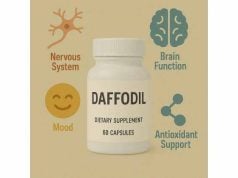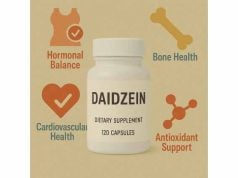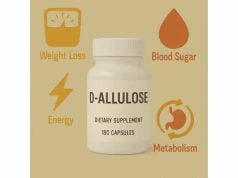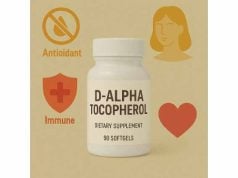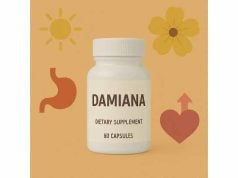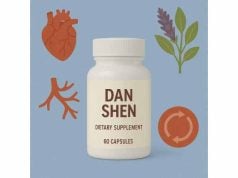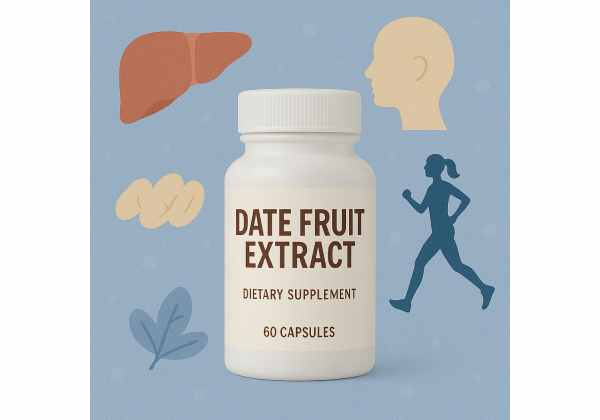
Date fruit extract is derived from the flesh or seeds of Phoenix dactylifera, the same date palm that produces the sweet, fiber-rich fruits eaten across the Middle East and beyond. Beyond flavor, dates and their extracts deliver polyphenols, flavonoids, minerals, and prebiotic fibers that may support antioxidant defenses, digestive balance, and—based on emerging clinical data—late-pregnancy outcomes and neutral glycemic responses when used sensibly. Because “date extract” can mean different things (fruit concentrate, polyphenol-standardized extract, or seed extract), results vary by product and dose. This guide translates the science into practical steps: what date fruit extract is, how it may help, who is most likely to benefit, how to choose and dose it, and how to avoid common mistakes. You will also find a clear look at safety, interactions, and the current strength of evidence so you can make an informed, people-first decision.
Essential insights for date fruit extract users
- Antioxidant-rich extracts from date fruit or seeds may help counter oxidative stress and support gut microbial balance.
- Late-pregnancy date intake is linked with easier labor metrics in pooled analyses; extracts in pregnancy should be clinician-guided.
- Typical supplemental ranges: 250–1,000 mg per day of polyphenol-rich extract, or 20–60 g of whole dates; start at the low end.
- Monitor total sugars when using concentrates; 60 g per day of dates showed neutral glycemic effects in type 2 diabetes over 12 weeks.
- Avoid or seek medical advice if you are on potassium-sparing drugs, have poorly controlled diabetes, kidney disease, or a date allergy.
Table of Contents
- What is date fruit extract?
- Science-backed benefits
- How date extract works
- How to use and dosage
- Safety, risks, and who should avoid
- Evidence check and research gaps
What is date fruit extract?
Date fruit extract is a concentrated form of bioactives obtained from the edible flesh or seed (pit) of Phoenix dactylifera fruit. Because producers use different parts and processing steps, understanding labels is essential.
Common forms you will see
- Fruit concentrate or syrup. Made by pressing, filtering, and concentrating the fruit flesh. It retains natural sugars, minerals (notably potassium), and some polyphenols. It behaves more like a functional sweetener than a high-potency supplement.
- Polyphenol-standardized fruit extract. Uses water or hydro-alcohol extraction to yield higher levels of phenolic acids and flavonoids with low sugar. Labels may state total polyphenols or specific markers (e.g., gallic acid equivalent).
- Date seed extract or powder. Ground or extracted from the pit; naturally caffeine-free and rich in fiber and polyphenols. Often marketed for antioxidant and digestive support; sugar-free and sometimes used as a coffee alternative.
- Whole-fruit powders. Dehydrated and milled flesh. These provide fiber and micronutrients with a glycemic impact similar to dried dates.
What to look for on labels
- Part used. “Fruit,” “seed,” or “whole fruit powder.”
- Standardization. A percentage for “total polyphenols” or specific compounds indicates consistent potency.
- Solvent system and additives. Water or food-grade alcohol extractions are typical; avoid unnecessary fillers if you need to control allergens.
- Sugar content. Fruit concentrates and syrups contribute carbohydrates; polyphenol extracts and seed extracts contribute minimal sugar.
How date extract compares with whole dates
Whole dates supply fiber (often 2–8 g per 100 g depending on variety), potassium, and natural sugars. Extracts can deliver concentrated polyphenols without much fiber or sugar (polyphenol extracts and seed extracts) or, in the case of concentrates, deliver sugar and minerals with moderate levels of bioactives. If your goal is antioxidant support with minimal carbohydrate, a standardized extract from fruit or seed is usually preferable; if your goal is culinary replacement or energy, a concentrate or whole fruit suits better.
Taste and sensory notes
- Fruit concentrate: caramel-like sweetness with molasses notes.
- Seed extract or powder: mildly bitter, roasted flavor; pairs well with cocoa or coffee-style beverages.
- Polyphenol extracts: neutral to mildly astringent; easy to encapsulate.
Science-backed benefits
1) Antioxidant and anti-inflammatory support
Date fruit and seeds contain polyphenols (e.g., phenolic acids and flavonoids) that neutralize reactive oxygen species and modulate inflammatory signaling in preclinical models. Reviews highlight high total phenolic content relative to many dried fruits, with seed extracts often outperforming flesh extracts in laboratory antioxidant assays. In practical terms, this suggests date-derived extracts can complement, not replace, a diet rich in plant antioxidants. When used daily, they may help buffer oxidative stress related to intense exercise, high-heat cooking, or urban pollution. Human trials are still limited, so position date extract as a supportive nutrient rather than a stand-alone therapy.
2) Late-pregnancy support (whole dates evidence)
Multiple clinical trials synthesized in systematic reviews and meta-analyses report that oral intake of dates in late pregnancy is associated with improved cervical readiness, shorter latent phases, fewer inductions, or reduced need for augmentation. The mechanistic rationale includes prostaglandin-like activity and smooth muscle effects from date constituents. Importantly, these outcomes are shown for whole dates, not concentrated extracts, and typically begin at 36–38 weeks’ gestation. For anyone considering date fruit intake in late pregnancy, coordination with a clinician or midwife is recommended to tailor quantity and timing based on the pregnancy course. If you are using a supplement labeled “date extract,” confirm with your provider whether to choose whole fruit instead, given that most trials used whole dates.
3) Neutral glycemic impact in sensible portions
Dates are sweet, yet their fiber and polyphenols help moderate postprandial response compared with many refined snacks. In a 12-week randomized clinical trial in type 2 diabetes, 60 g per day of dates (approximately six medium dates) showed no deterioration in HbA1c, fasting glucose, or insulin resistance versus a glycemic-matched comparator. Acute studies in healthy volunteers show low to medium glycemic index values across varieties and ripeness stages, with glycemic load driven by portion size. For individuals tracking carbohydrates, polyphenol-rich extracts or seed extracts (which are low in sugar) allow you to capture potential antioxidant benefits with minimal carbohydrate.
4) Digestive and microbiome angles
In vitro digestion and fecal culture studies suggest whole date preparations can increase beneficial bifidobacteria and generate helpful phenolic metabolites in the colon. While clinical microbiome trials are still sparse, users often report improved regularity with whole-fruit powders and a lack of bloating with seed extracts, which contain negligible sugar and modest fiber.
5) Cardiometabolic markers: cautious optimism
Animal studies and small human studies have explored lipids, inflammatory markers, and endothelial function, but findings are mixed and often hinge on the form (seed powder versus fruit), dose, and duration. As of now, it is prudent to frame date extract as supportive nutrition that may fit into a cardiometabolic plan but should not be expected to move clinical endpoints on its own. People with diabetes or dyslipidemia can still include dates or date extracts strategically, prioritizing portion control and overall dietary pattern.
Who tends to benefit most
- Pregnant people at term who have been advised by their provider to trial whole dates for labor preparation (whole fruit, not extract).
- Individuals seeking to reduce refined sugars by substituting date syrup in recipes while monitoring portions.
- Those who want polyphenol support with minimal sugar exposure (choose standardized fruit extracts or seed extracts).
How date extract works
Key bioactive families
- Phenolic acids and flavonoids. Gallic, caffeic, ferulic acids, catechins, and quercetin derivatives help quench reactive oxygen species and modulate NF-κB and Nrf2 pathways. In tissues, this can translate to lower lipid peroxidation and better endogenous antioxidant enzyme activity.
- Dietary fiber and oligosaccharides (whole fruit). Insoluble fiber promotes bulk and regularity; soluble components and oligosaccharides act as fermentable substrates for gut microbes that produce short-chain fatty acids, which are linked to gut barrier integrity and metabolic signaling.
- Mineral matrix. Dates are rich in potassium and contain magnesium and trace minerals that support neuromuscular and cardiovascular function. Extracts vary: polyphenol extracts and seed extracts contribute little mineral load, whereas concentrates and whole-fruit powders retain minerals.
- Seed-specific compounds. Date seeds contain higher levels of certain polyphenols and protective lipids. Extracts from seeds demonstrate strong lab antioxidant activity and may modulate lipid peroxidation in cell models.
Mechanistic pathways that map to outcomes
- Antioxidant defense: Polyphenols donate electrons to stabilize radicals and upregulate endogenous enzymes (superoxide dismutase, catalase, glutathione peroxidase).
- Anti-inflammatory signaling: Suppression of pro-inflammatory mediators and potential COX modulation may contribute to observed comfort effects and, in pregnancy research with whole fruit, smoother labor trajectories.
- Glycemic moderation (contextual): Fiber and the physical matrix of whole dates slow gastric emptying and glucose absorption; polyphenols may inhibit carbohydrate-digesting enzymes in vitro. Extracts without fiber do not confer the same mechanical effect but may still influence enzyme activity.
- Microbiome metabolism: Phenolics reach the colon and are transformed into smaller metabolites with bioactivity; increases in beneficial bacteria have been observed in lab models fed with date-based preparations.
Why product choice changes the effect
- Whole dates or whole-fruit powder: Best for fiber-mediated effects and late-pregnancy data.
- Polyphenol-standardized extract: Best for concentrated antioxidant support with minimal sugar.
- Seed extract/powder: Sugar-free, robust lab antioxidant properties; emerging clinical data.
Bioavailability considerations
Take polyphenol-rich extracts with meals to enhance absorption and reduce any mild gastric irritation. Pairing with protein or fat can blunt glycemic excursions if you are using whole-fruit concentrates. For seed powders, dispersion in warm beverages improves palatability and mixing.
How to use and dosage
There is no universally accepted clinical dose for “date fruit extract.” Optimal intake depends on your goal and the form you choose. Use these practical, evidence-aligned ranges to guide initial decisions and then individualize.
If your goal is antioxidant support with minimal sugar
- Polyphenol-standardized fruit extract: 250–500 mg per day to start; up to 1,000 mg per day if tolerated and guided by product directions. Choose products specifying total polyphenols or a known marker compound.
- Date seed extract or powder: 1–3 g per day mixed into smoothies, oats, or yogurt, or use capsules equating to similar amounts. Many people find 1 g twice daily easy to maintain. Because seed products are sugar-free, they fit low-carb plans.
If your goal is culinary replacement or whole-food intake
- Whole dates: 20–60 g per day (about 2–6 dates depending on variety and size). In a 12-week clinical trial in type 2 diabetes, 60 g per day showed neutral glycemic effects when diet and medications were otherwise stable.
- Date syrup or concentrate: Use as you would honey or maple syrup, accounting for sugars. Consider 1–2 teaspoons at a time in recipes and beverages, especially if you track carbohydrate intake.
If your goal is late-pregnancy support
- Discuss with your obstetric provider. Clinical studies most often used whole dates initiated at 36–38 weeks’ gestation rather than concentrated extracts. Typical patterns range from several dates daily, adjusting for appetite and glucose targets. Because pregnancy care is individualized, do not self-prescribe concentrated extracts in pregnancy.
Timing and stacking tips
- With meals: Reduces any stomach upset and, for whole-fruit products, moderates glycemic impact.
- Combine intelligently: Pair seed or polyphenol extracts with vitamin C-rich foods to support polyphenol recycling. If using other polyphenol-dense supplements (e.g., green tea extract), rotate days or split dosing to minimize GI discomfort.
- Hydration: Whole-fruit powders and seed powders are fiber-bearing; take with water.
How to choose a quality product
- Look for third-party testing for purity and heavy metals.
- Prefer transparent standardization and part-used disclosure (“fruit” versus “seed”).
- For syrups, check sugar per serving and avoid unnecessary additives.
- For powders, scan for allergens and confirm gluten-free if needed.
When to expect effects
- Digestive comfort and regularity: within days for whole-fruit powders.
- Perceived antioxidant support (recovery, less fatigue): several weeks of consistent use.
- Pregnancy-related outcomes: tied to timing and obstetric guidance; evidence is for whole dates near term.
Safety, risks, and who should avoid
Date fruit and date seed preparations are generally well tolerated when used in typical culinary amounts or as directed on supplement labels. That said, the form you choose matters for safety.
Common, usually mild effects
- Digestive changes. Gas or looser stools can occur with sudden increases in whole-fruit powders because of fiber and oligosaccharides. Start low and increase gradually. Seed extracts, being sugar-free and lower in fermentable fiber per capsule, are less likely to cause bloating.
- Taste adaptation. Seed powders have a roasted, slightly bitter note; mixing into cocoa or coffee-style drinks improves palatability.
Situations requiring caution
- Diabetes or insulin resistance. Whole dates and syrups contribute carbohydrates. Clinical data show neutral glycemic effects at 60 g per day in a structured setting, but individual responses vary. Monitor post-meal glucose and keep total carbohydrate targets in mind. Polyphenol-rich or seed extracts are better choices if you need to limit sugar.
- Kidney disease or potassium-restricted diets. Whole dates and concentrates are potassium-rich; excess can be problematic in impaired renal function. Choose low-mineral extracts or avoid altogether if advised.
- Medications and interactions.
- Potassium-sparing diuretics, ACE inhibitors, or ARBs: High-potassium whole-fruit products and syrups may increase the risk of hyperkalemia.
- Antidiabetic medications: Adding carbohydrate through syrups or large whole-fruit portions may require glucose monitoring and dietary adjustments.
- Anticoagulants: Polyphenols do not inherently thin blood, but any new concentrated botanical should be disclosed to your clinician if you are on warfarin or direct oral anticoagulants.
- Allergy. If you have known sensitivities to dates or other fruits from the Arecaceae family, avoid these products.
Pregnancy and lactation
- Late pregnancy: Evidence supports whole date intake started near term as part of care overseen by your provider.
- Early pregnancy and lactation: Use culinary amounts as part of a balanced diet. There is limited research on concentrated extracts in early pregnancy and during lactation; discuss with your clinician before use.
Quality and contamination risks
Choose reputable brands with certificates of analysis. Like other botanicals, date-derived products can vary in heavy metal content and pesticide residues depending on origin. Seed powders and extracts are generally low in sugar and moisture, which can improve shelf stability.
Discontinue and seek advice if you notice
- Persistent GI upset, rash, hives, or throat swelling.
- Unexpected changes in glucose control, blood pressure, or potassium levels (if you have renal issues or are on relevant medications).
Evidence check and research gaps
What is well supported
- Nutrient and phytochemical richness. Comprehensive reviews document dates’ high polyphenol content, fiber, and mineral profile, with seed preparations often showing particularly strong antioxidant capacity in lab assays.
- Late-pregnancy outcomes with whole dates. Systematic reviews and meta-analyses synthesize trials reporting improved cervical ripening and labor progress metrics when dates are consumed from 36–38 weeks under clinical supervision.
- Neutral mid-term glycemic effects at common intakes. A 12-week randomized clinical trial in type 2 diabetes found no adverse effect on HbA1c or fasting glucose at 60 g of dates daily.
What is promising but needs stronger trials
- Cardiometabolic risk modification via extracts. Preclinical results are positive, but dose-ranging, controlled human trials with polyphenol-standardized fruit or seed extracts are sparse.
- Gut microbiome modulation in humans. In vitro data show bifidogenic effects; small, controlled human trials are needed to quantify changes in short-chain fatty acids and symptoms.
- Head-to-head comparisons of fruit versus seed extracts. Standardized trials would help tailor product choice to individual goals (e.g., antioxidant load versus fiber support).
How to apply the evidence today
- Match the form to your goal: whole fruit for fiber and term-pregnancy support with clinician guidance; standardized extract or seed products for antioxidant support and low sugar.
- Keep expectations calibrated: date extract is a supportive nutrient, not a stand-alone treatment for metabolic or obstetric conditions.
- Track personal responses over four to eight weeks, adjusting dose and form based on energy, digestion, and (if relevant) glucose readings.
References
- An Overview of Date (Phoenix dactylifera) Fruits as an Important Global Food Resource 2024 (Review)
- Effect of Date Fruit Consumption on the Glycemic Control of Patients with Type 2 Diabetes: A Randomized Clinical Trial 2022 (RCT)
- Is oral consumption of dates (Phoenix dactylifera L. fruit) in late pregnancy and during the active phase of labor effective? A systematic review and meta-analysis 2024 (Systematic Review)
- A Comprehensive Review of the Impact of Date Palm (Phoenix dactylifera L.) and Its Seed on Human Health 2023 (Review)
- Influence of Date Ripeness on Glycemic Index, Glycemic Load, and Glycemic Response in Various Saudi Arabian Date Varieties 2023 (Clinical Trial)
Disclaimer
This content is for educational purposes and is not a substitute for professional medical advice, diagnosis, or treatment. Always talk with your physician, obstetric provider, or registered dietitian before starting any new supplement, especially if you are pregnant, nursing, managing a medical condition, or taking prescription medications.
If you found this guide helpful, please consider sharing it on Facebook, X (formerly Twitter), or your preferred platform, and follow us for more evidence-based nutrition explainers. Your support helps us continue producing high-quality, people-first content.

